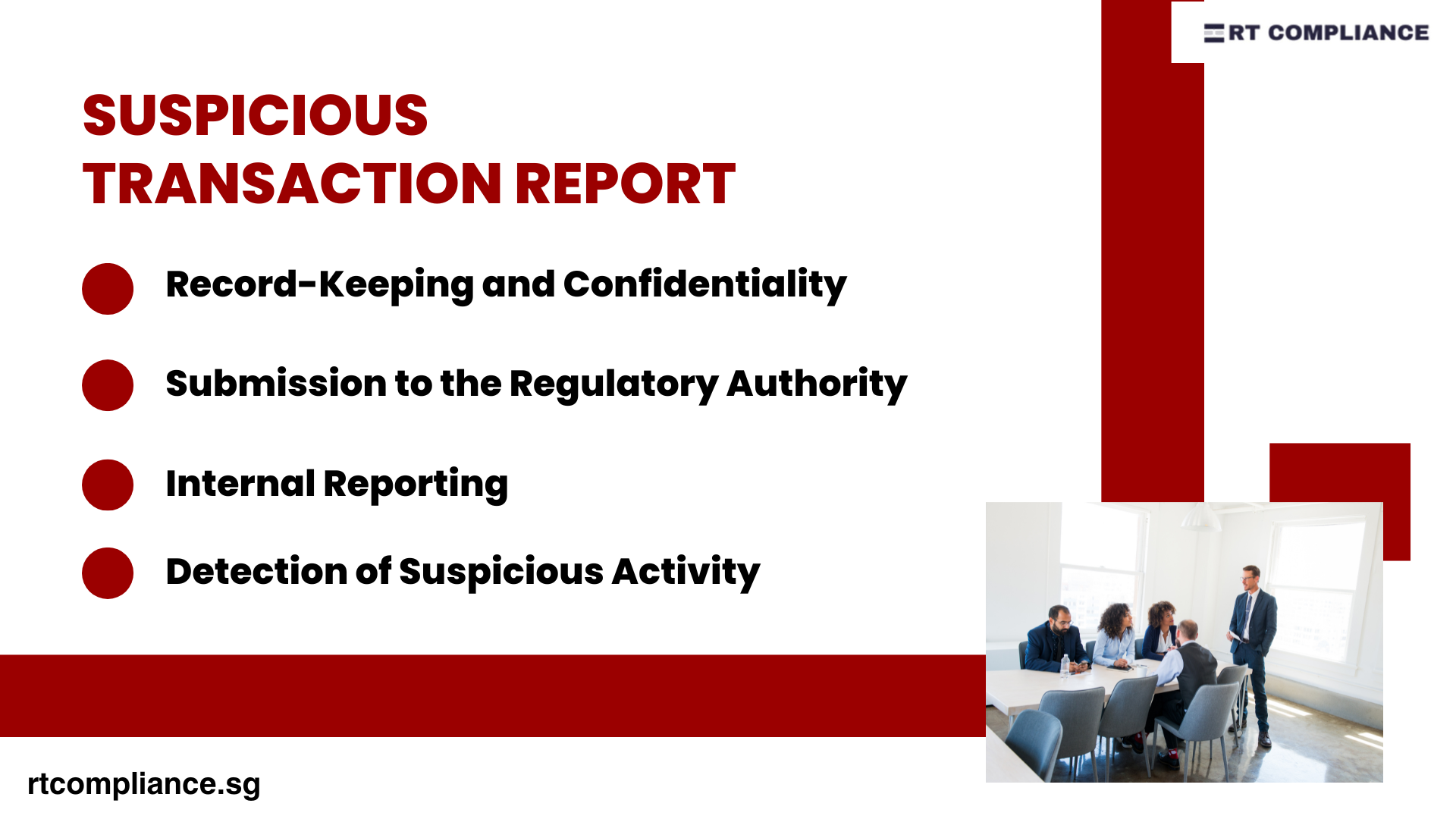The Monetary Authority of Singapore has announced a warning to the public about a new scam that has been targeting bank customers in Singapore. According to MAS, the scam involves criminals pretending to be bank staff and asking customers to provide their personal information or transfer money to an account for “suspicious transactions.” MAS advised the public to be vigilant when receiving calls or emails from unknown persons and to never give out their personal information or bank account details to anyone. If you have received a call or email, you should immediately report it to your bank and file a police report.
Suspicious Transaction Report (STR) in Singapore: What You Need to Know
A Suspicious Transaction Report (STR) is a mandatory report filed by financial institutions, money service businesses, or DNFBPs when they detect potential money laundering, terrorism financing, or other suspicious activities as per MAS STR Guidelines.
Financial institutions and businesses are required by law to file an STR if they have reasonable evidence to suspect that a transaction:
– Involves proceeds of crime
– Is designed to evade tax or other government regulations
– Maybe part of a money laundering scheme
– Involves terrorist financing
When an STR is filed, the financial institution or business must freeze the relevant accounts and notify the authorities. An investigation will then be conducted to determine if there is indeed any criminal activity involved.
Importance of Reporting Cash Transactions in Singapore
Cash transaction reporting in Singapore plays a key role in the nation’s anti-money laundering (AML) efforts. Under the Inland Revenue Authority of Singapore (IRAS) and MAS Notice on STR, businesses must report cash transactions above S$10,000 within 7 days.
Cash transaction reports must be filed with the Inland Revenue Authority of Singapore (IRAS) within seven days of the transaction taking place. Failure to do so can resulting in penalties, including a fine of up to S$20,000 or imprisonment of up to seven years.
Businesses should take care to keep accurate records of all cash transactions, as well as maintain internal controls to ensure that such transactions are correctly reported. Suspicious transactions should also be reported to the Commercial Affairs Department (CAD) of the Singapore Police Force.
The following are some examples of cash transactions that must be reported:
– Sales of goods or services where the total amount paid in cash is more than S$10,000
– Withdrawals of more than S$10,000 in cash from a bank account
– Deposits of more than S$10,000 in cash into a bank account
– Transfers of more than S$10,000 in cash to another person or business
STR Filing Process for Financial Institutions in Singapore
If you are a financial institution in Singapore, you are obligated to file a Suspicious Transaction Report (STR) if you know or have reason to suspect that any transaction:
- is or may be connected with money laundering, terrorist financing, or other serious crimes; or
- involves using the financial institution’s services to facilitate criminal activity.
You must file an STR within 7 days of forming the suspicion unless there are exceptional circumstances. The report must be made electronically through the Suspicious Transaction Reporting System (STRS).
When making an STR, financial institutions should provide as much information as possible about the suspicious transaction, including:
-The name and particulars of the person(s) or entity involved in the transaction;
-The account number(s), type(s) of account(s) and product(s)/service(s) involved in the transaction;
-The date, time, and amount of the transaction;
-The currency involved in the transaction (if different from Singapore Dollars); and
-The mode/method of conducting the transaction.
What Happens After Reporting Suspicious Transactions in Singapore?
Once the Suspicious Transaction Report is submitted, the Commercial Affairs Department (CAD) of the Singapore Police Force will investigate the case.
If the case is found to be an actual case of money laundering or terrorism financing, CAD will take appropriate enforcement action. This may include freezing accounts, seizure of assets, and arrest.
If the case is not money laundering or terrorism financing, CAD will close the case, and no further action will be taken.
Can I Withdraw My Suspicious Transaction Report?
Yes, you can request to withdraw your suspicious transaction report to the Singapore Police Force. However, this request may only be made after the police have completed their investigation.
Who is Required to Make a Suspicious Transaction Report in Singapore?
All the regulated entities such as banks, financial institutions, money service businesses, and designated non-financial businesses and professions (DNFBPs), are required to file STRs, whenever suspicious activity is identified. MAS Notice 626 states the regulatory compliance that pertains to such reporting in Singapore.
Usual signs of suspicious transactions
Examples of suspicious transactions include:
- ✔️ Unusual patterns in customer behavior
- ✔️ Designing transactions in order to avoid reporting thresholds
- ✔️ Transactions involving high-risk jurisdictions
- ✔️ Use of third parties to cover identity.
These are indications on which STR may be filed under Singapore’s AML laws.
Consequences of failing to file an STR in Singapore.
Failure to submit the Suspicious Transaction Report where required by law calls for serious legal and financial punishments in terms of fines and imprisonment. Monitoring of compliance is rather active on both parts of the Monetary Authority of Singapore (MAS) and CAD.
Conclusion
While there is no guaranteed way to prevent all suspicious transactions from occurring, by implementing a few best practices, you can help to deter and detect them. By regularly reviewing your transaction reports and keeping an eye out for red flags, you can help to protect your business from fraudsters. If you suspect a transaction may be fraudulent, report it to the relevant authorities so that they can investigate.






